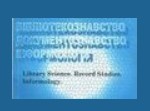ІНТЕРНЕТ-ТЕХНОЛОГІЇ: ВІД ДОПОМІЖНОГО ЗАСОБУ ПОЛІТИЧНОГО ПРОСУВАННЯ ДО НАЙВАЖЛИВІШОЇ СКЛАДОВОЇ ВИБОРЧИХ КАМПАНІЙ
INTERNET TECHNOLOGIES: FROM AN AUXILIARY TOOL OF POLITICAL PROMOTION TO THE MOST SIGNIFICANT COMPONENT OF ELECTION CAMPAIGNS
Author(s): Liudmyla DoskichSubject(s): Media studies, Electoral systems, ICT Information and Communications Technologies
Published by: Національна академія керівних кадрів культури і мистецтв
Keywords: Internet technologies; elections; social networks; electoral fundraising and crowdsourcing; e-voting;
Summary/Abstract: The purpose of the study is to analyze the main functionality and role of modern Internet technologies in election campaigns. The research methodology is based on the application of general scientific (analysis, synthesis, generalisation, systematisation) and special methods and approaches integrated from the science of social communications, information science, political science, and sociology. Such methodological interdisciplinarity enables considering the subject of research as a multifunctional phenomenon included in a complex system of informational social interaction. The scientific novelty consists in expanding ideas about the latest Internet technologies as the most important informational component of a modern election campaign. Conclusions. The presence in cyberspace of a large share of active ‘political’ audience, and, accordingly, potential voters, as well as the facts of the success of electoral campaigns on the Internet contribute to the expansion of the presence of digital technologies, in particular the Internet, in election campaigns. Thus, Internet technologies have become an integral universal, communicative core of modern election technologies, having evolved from an auxiliary tool of supporting the strategy of political promotion into the most significant independent component of election campaigns. Currently, within the latter ones, the following Internet technologies are most actively used: production and replication of political information using websites, social networks, blogs, Internet media; special mobile applications; e-voting; electoral fundraising; crowdfunding; online broadcasts on YouTube; tools to attract volunteers; monitoring, analysis, and design of electoral dynamics (Big Data technologies), and electoral crowdsourcing.
Journal: Бібліотекознавство. Документознавство. Інформологія
- Issue Year: 2022
- Issue No: 3
- Page Range: 70-75
- Page Count: 6
- Language: Ukrainian

